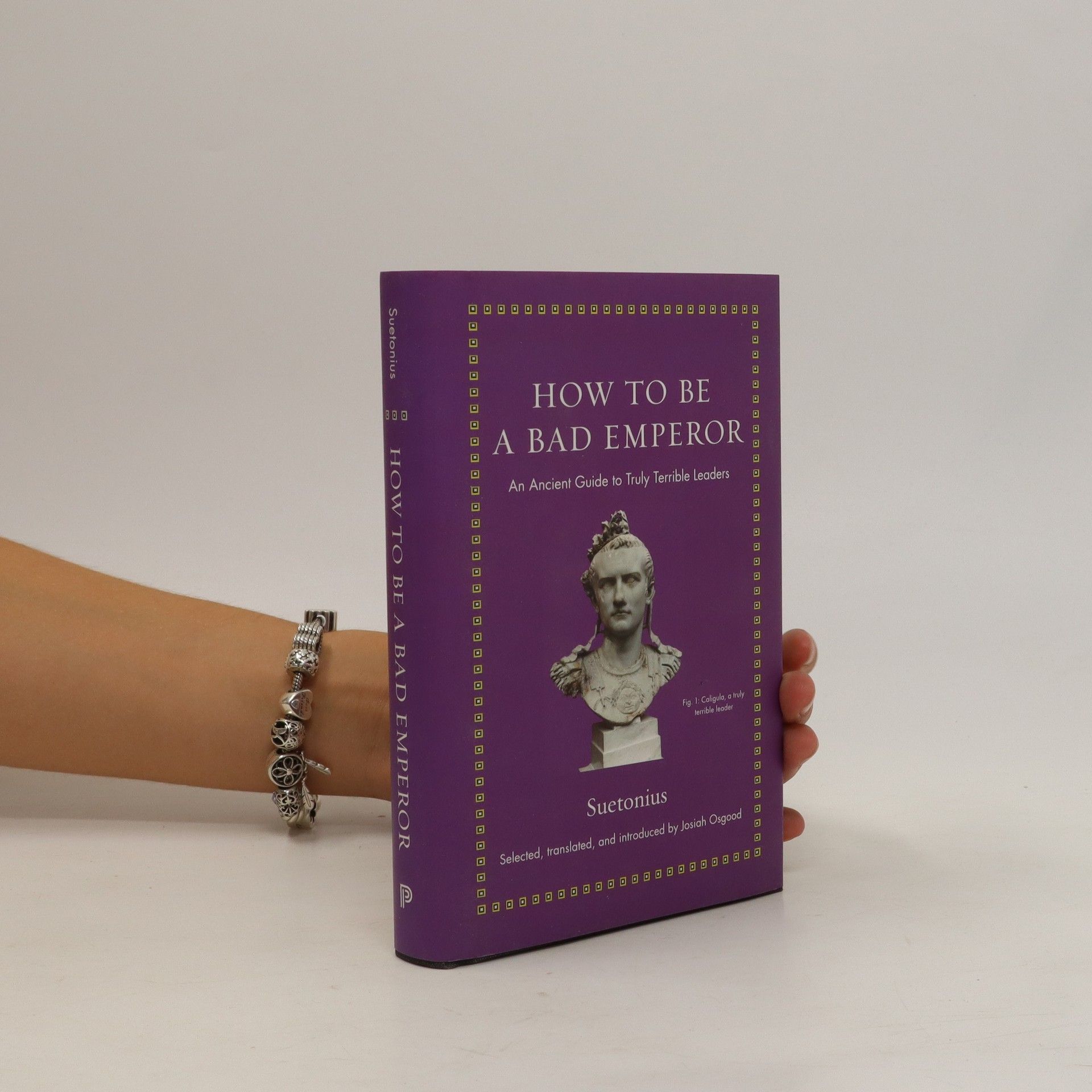A dual biography of Julius Caesar and Cato the Younger that offers a dire warning: republics collapse when personal pride overrides the common good.
Josiah Osgood Livres
Josiah Osgood est Professeur d'études classiques à la Georgetown University, dont l'enseignement et la recherche couvrent de nombreux aspects de l'histoire romaine et de la littérature latine, avec un accent particulier sur la chute de la République romaine. Son œuvre explore les forces politiques et sociales complexes qui ont précipité la disparition de l'ancienne république. Par ses travaux universitaires, Osgood offre des perspectives éclairées sur l'époque troublée qui a profondément façonné la civilisation occidentale.



How to Be a Bad Emperor
- 312pages
- 11 heures de lecture
But other emperors, such as Tiberius, Caligula, and Nero, infamously used their power to indulge vice and harm others. Ever since their publication, Suetonius' imperial biographies have appealed to readers, both because of their sensational stories and the larger questions of power they raise. They spawned many sequels in antiquity (as well as more recent works like Robert Graves's famed, I, Claudius). While a number of good English translations are in print, reading Lives of the Caesar from cover to cover can be daunting, so many details are included. Also general readers, including students, are really interested in the stories of the bad emperors. This book, then, in a reversal of the usual self-help formula that Suetonius would appreciate, offers selections from the lives of four bad emperors (Julius Caesar, Tiberius, Caligula, and Nero) to create a guide on how to be a bad leader. own worst qualities and become more dangerous to us than any enemy. .
This book boldly reinterprets the central period of Roman history by taking the focus off the emperor Augustus. Its chapters highlight the contributions of other individuals and continuities with republican culture. Together they show that Augustus has been more dominant in later memory than he was in his own lifetime.